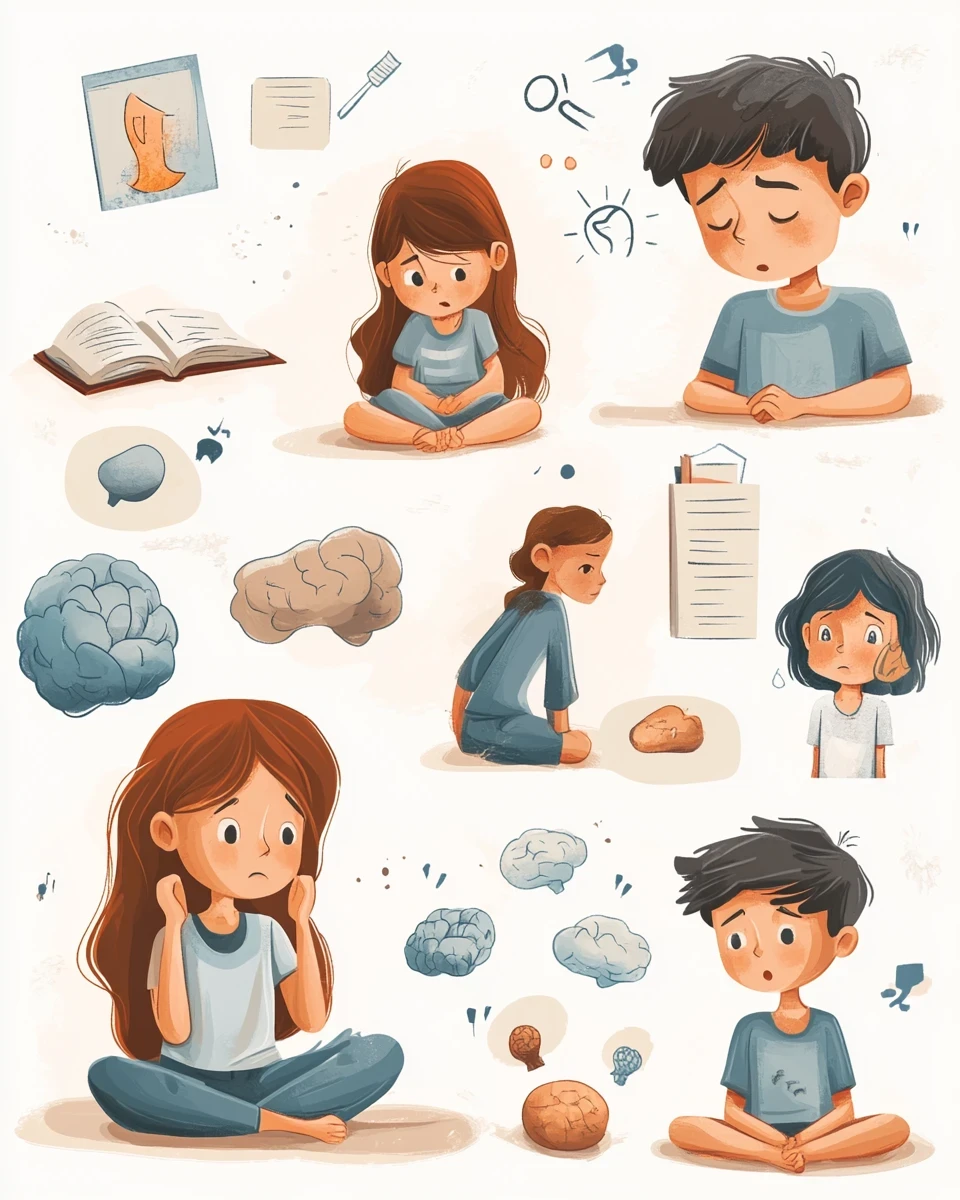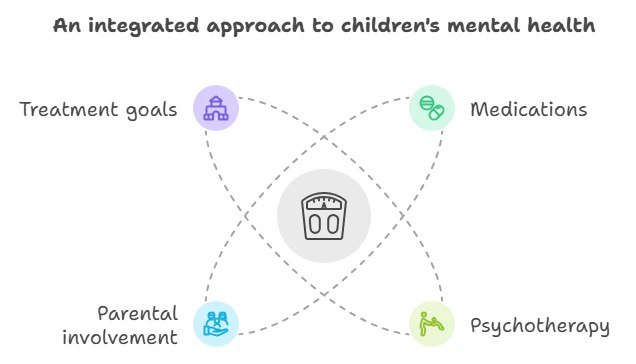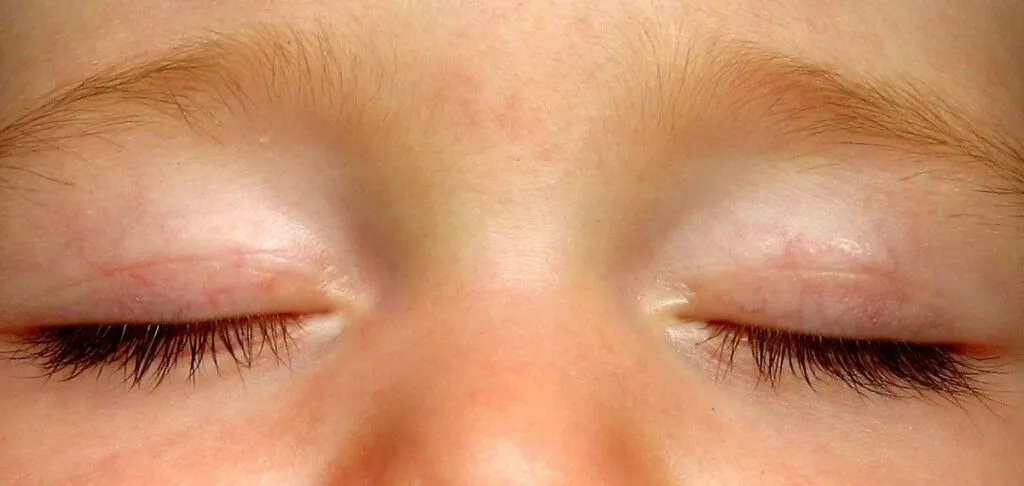

Children’s mental health plays a key role in their overall development and well-being.
Timely identification of signs of psychological difficulties and prompt intervention can have a significant impact on a child’s future, ensuring harmonious development and successful socialization.

In this article, we look at the key early warning signs of mental health problems in children, evidence-based interventions, and recommendations for parents.
Early signs of mental health problems in children
Recognizing early signs of mental health problems allows parents and professionals to take timely action to support their child.

Below are the most common signs to look out for:
| Signs | Description |
|---|---|
| Changes in behavior | Sudden changes in behavior, such as aggression, withdrawal, or irritability. |
| Problems in learning | Decreased academic performance, difficulty concentrating and completing assignments. |
| Social isolation | Refusal to socialize with peers, avoidance of social situations. |
| Emotional instability | Frequent mood swings, crying, anxiety or fears for no apparent reason. |
| Physical symptoms | Frequent headaches, abdominal pain, or other somatic complaints without medical cause. |

Evidence-based interventions
Current research shows that early intervention can significantly improve children’s mental health. Key methods include:
Psychological support
Psychological support includes individual or group sessions with a qualified psychologist to help the child understand and cope with his or her emotions.
During such sessions, the child is given the opportunity to openly express his or her feelings, which helps to reduce anxiety and stress.
The psychologist uses a variety of techniques adapted to the age and characteristics of the child to build emotional resilience and develop self-reflection skills.
Regular meetings with the psychologist also help to identify the root causes of emotional difficulties and develop strategies to overcome them, thus ensuring a more harmonious development of the child’s personality.

Cognitive Behavioral Therapy (CBT)
Cognitive Behavioral Therapy (CBT) focuses on changing negative thoughts and behaviors that may interfere with a child’s normal functioning.
In CPT, the child learns to recognize and challenge distorted beliefs and replace them with more positive and realistic ones.
The therapist works on developing problem-solving and stress management skills, which helps the child cope better with difficult situations.
CPT also includes practical exercises and homework assignments that help reinforce new skills and lasting behavioral changes.
This approach has proven effective in treating a variety of mental health disorders, including anxiety and depression.

Family therapy
Family therapy involves working with the whole family to improve communication and resolve conflicts that may be negatively affecting a child’s mental health.
In these sessions, all family members are given the opportunity to openly discuss their feelings and concerns in a safe and supportive environment.
The therapist helps to identify patterns of interaction that contribute to tension and stress and offers strategies for changing them.
Improving family dynamics helps create a more stable and supportive environment, which has a positive impact on the child’s emotional well-being.
Family therapy also strengthens the bond between parents and children, increasing understanding and trust within the family.

Medical treatment
Medication can be a necessary component of comprehensive therapy for psychiatric disorders in children, but it is always administered under the strict supervision of a psychiatrist.
In some cases, medications help to correct the chemical balance in the brain, which helps to reduce symptoms of anxiety, depression or other disorders.
It is important that medication treatment is accompanied by psychotherapeutic methods such as CBT or psychological support for best results.
Parents should closely monitor their child’s response to medication and regularly consult with the doctor to adjust dosage or change medications if necessary.
Proper medication management can significantly improve a child’s quality of life and ability to participate in daily activities and school.
Table 2: Effective interventions by type of mental disorder
| Type of disorder | Effective interventions |
|---|---|
| Depression | CPT, medication therapy, family support |
| Anxiety disorders | CPT, relaxation techniques, exposure therapy |
| ADHD (Attention Deficit Hyperactivity Disorder) | Behavioral therapy, medication management, school support |
| Autism spectrum disorders | Early therapy, structured educational programs, sensory integration |

Recommendations for parents
Parents play a crucial role in supporting their children’s mental health. Here are some guidelines to help create a favorable environment for their emotional well-being:
- Monitor your child’s behavior: Pay attention to changes in behavior, emotions and learning. Early diagnosis allows for early intervention.
- Create a supportive environment: Provide a stable and loving home environment for your child. Communicate regularly with him or her and listen to his or her concerns.
- Encourage physical activity: Regular physical activity improves mood and reduces stress levels.
- Establish routines : A clear routine helps children feel safe and organized.
- Seek professional help: If you notice signs of mental health problems in your child, don’t delay in seeing a professional.
Table 1: Key recommendations for parents to support their child’s mental health
| Recommendation | Description |
|---|---|
| Observing changes | Regularly assess your child’s behavior and emotional state. |
| Supportive atmosphere | Create a safe and loving environment at home. |
| Physical activity | Encourage participation in sports and other physical activities. |
| A clear daily routine | Set a regular schedule for the day for stability and predictability. |
| Professional assistance | Do not delay in seeing a psychologist or psychiatrist if necessary. |

Conclusion
Children’s mental health is an important aspect of their overall development that requires the attention and care of parents and professionals.
Early recognition of the signs of problems and the use of evidence-based interventions can significantly improve a child’s quality of life and successful adjustment to society.
By following guidelines and creating a supportive environment, parents can play a key role in ensuring the mental well-being of their children.



